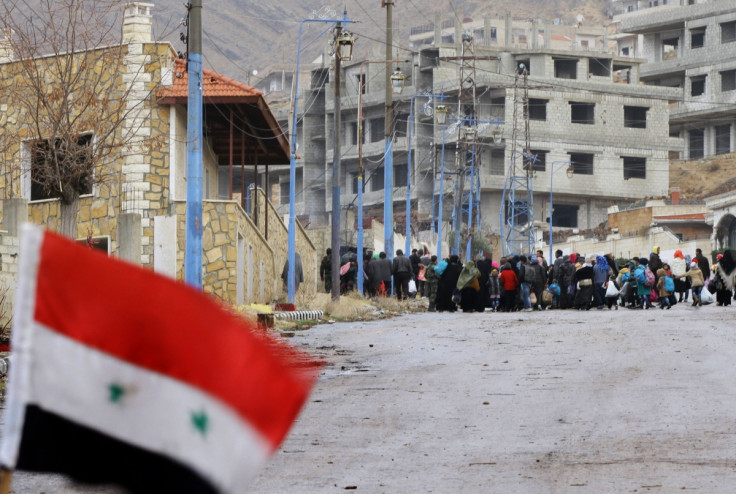Syria crisis: UK and the West 'get United Nations backing' to airdrop aid to the starving

Western countries including the UK have reportedly been given United Nations backing to carry out airdrops of vital supplies over Syrian towns without permission from the regime in Damascus.
As the West struggles to come up with a solution to help the starving in besieged areas of Syria, the UN under-secretary general for humanitarian affairs, Stephen O'Brien reportedly wrote to the British government urging that all options needed to be on the table.
MPs say flying aid in is too dangerous as the air space is controlled by the regime and its sophisticated Russian air defence systems.
However, the Daily Telegraph reported that O'Brien's letter makes clear that the International Development Secretary, Justine Greening, had asked for his views on "possible use of airdrops in the Syria context".
He writes: "Given the appalling level of need in Syria and our collective responsibility to act, I believe we have reached a moment where all options need to be on the table", warning that any British-led operations should comply both with international humanitarian law and "key principles of impartiality."
Labour MP Jo Cox had written to David Cameron urging the prime minister to consider humanitarian air-drops to besieged people reeling from starvation, especially in Madaya, which is among 12 towns across Syria under siege from forces loyal to Bashar al-Assad.
Cox, a former policy head at Oxfam, told the Telegraph she welcomed the development. "We know that Assad has the power to control upwards of 90 per cent of besieged communities. In the event that the UN doesn't negotiate sustained ongoing access, aid drops should be on the table," she said.
"NGOs are saying to me that they just can't get in - the Syrian government is putting up hurdle after hurdle so it can continue its collective punishment."
A spokesman for the International Development department told the paper: "We do not rule anything out, but our current assessment is that aid delivered by road, by people who know the situation on the ground and who can ensure it gets to those who need it most, is more effective."
© Copyright IBTimes 2025. All rights reserved.





















